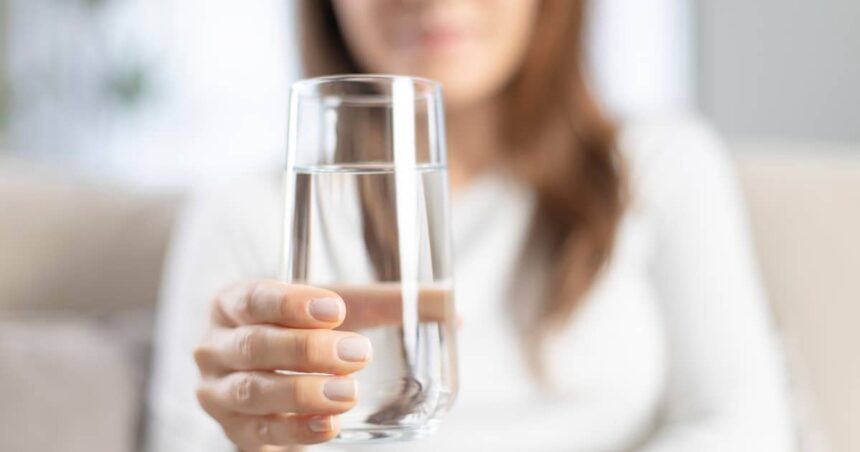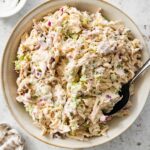Polydipsia, the persistent feeling of maximum thirst, is usually related to diabetes.
Whereas excessive thirst is a widely known symptom of undiagnosed diabetes, polydipsia can happen in individuals with current diabetes for a lot of causes.
This text will examine the connection between diabetes and polydipsia and what you are able to do about it for those who wrestle with this situation.
What’s polydipsia?
Polydipsia is a medical time period that means excessive or extreme thirst.
Thirst is a traditional sensation that permits you to know that your fluid stability is off and that you need to drink one thing. However a persistent feeling of thirst, particularly for those who’re already consuming lots of fluids, just isn’t regular and could also be an indication of a medical situation.
If polydipsia leads somebody to drink an extreme quantity of fluids to quench their thirst, it will probably additionally lead to polyuria, the medical time period for when an individual is producing extreme urine.
However how a lot fluid consumption is taken into account polydipsia? Usually consuming 5 or 6 liters of liquid per day and persevering with to really feel thirsty could be thought-about polydipsia.
What could cause polydipsia and excessive thirst?
Polydipsia is a symptom of a number of circumstances, together with:
- Undiagnosed diabetes. Kind 1 diabetes, sort 2 diabetes, gestational diabetes, and prediabetes all can set off polydipsia
- Excessive blood sugar in somebody who has already been recognized with diabetes mellitus
- Diabetes insipidus, a uncommon situation that’s unrelated to diabetes mellitus. Diabetes insipidus doesn’t influence blood sugar ranges, however as an alternative causes polydipsia and polyuria as a result of the kidneys don’t focus urine accurately
- Acute dehydration
- Some behavioral well being circumstances, together with sure anxiousness issues
- Sure severe kidney accidents or ailments, together with renal cystic illness, liver ailments, in addition to coronary heart failure
- Critical infections, together with sepsis
- Electrolyte imbalances, significantly hypokalemia (low concentrations of potassium within the blood)
Along with diagnosable medical circumstances, non permanent excessive thirst will also be brought on by lack of fluids from diarrhea or vomiting, or from sweating, significantly if the temperature is excessive.
Many individuals may even expertise it from dietary elements, like consuming extreme alcohol or caffeine, or from consuming very salty meals.
Being pregnant and a few pharmaceuticals also can set off excessive thirst.
Some individuals will expertise polydipsia throughout the night time if the temperature of their bed room is simply too excessive, or due to nasal congestion or a situation that causes them to breathe by means of their mouths when sleeping as an alternative of by means of their noses.
Many elements and circumstances can result in extreme thirst, but when that thirst persists for a number of days and isn’t helped by consuming sufficient liquid, it’s a good suggestion to speak to a health care provider or medical supplier.
Diabetes and polydipsia
Extreme thirst is without doubt one of the main warning indicators of diabetes and it’s typically among the many first signs an individual will discover earlier than being recognized.
Because of this, you shouldn’t ignore unexplained polydipsia.
The explanation that diabetes and feeling thirsty are so linked is that hyperglycemia (having excessive blood sugar ranges) typically causes a sense of thirst.
When somebody’s blood sugar is excessive, their kidneys need to do additional work to soak up the surplus sugar circulating within the blood. A lot of this additional sugar can also be flushed from the physique within the urine. The physique has to drag fluid out of organs and tissues to perform this, however doing that throws off the physique’s regular fluid stability leaving an individual dehydrated.
People, like most different residing organisms, need to maintain their fluid ranges inside a really slender vary so as to keep wholesome. When somebody turns into dehydrated as a result of their tissues are giving up extreme liquid to assist flush out extra sugar, the mind detects the imbalance and triggers the feeling of thirst.
If somebody’s blood sugar ranges stay excessive, their kidneys will proceed making an attempt to flush out the extreme sugar, that means that dehydration will proceed, fluid ranges is not going to return to regular, they usually’ll seemingly proceed to expertise excessive thirst.
Nevertheless, with the assistance of a medical skilled, blood sugar ranges could be introduced beneath management, which is able to normally resolve extreme thirst fairly rapidly.
Relying on the kind of diabetes somebody has, docs and different medical suppliers will prescribe some mixture of medicines (like injectable insulin or oral metformin), in addition to steered dietary, train, and habits tips to observe.
Handbook “fingerstick” blood sugar testing or a steady glucose monitor are additionally more likely to be prescribed to assist observe blood sugars over time and assist somebody with diabetes modify their medicine or eating regimen to keep away from excessive or low blood sugar.
A hemoglobin A1C blood check can also be more likely to be ordered to trace common blood sugars over a three-month interval.
All these instruments collectively may help individuals with diabetes keep away from excessive blood sugar ranges and the signs like polydipsia that usually end result.
After getting blood sugar ranges again to a traditional vary, most individuals with diabetes will discover that their extreme thirst goes away rapidly.
Is polydipsia a symptom of diabetic ketoacidosis?
Having increased than regular blood sugar ranges (hyperglycemia) could cause polydipsia. And extended, or very excessive, excessive blood sugar ranges can result in diabetic ketoacidosis (DKA).
Extreme thirst and extreme urination are widespread early signs of diabetic ketoacidosis.
When you’ve been recognized with diabetes, it’s essential to regulate your blood sugar ranges, and to be careful for the signs of DKA, together with unquenchable or extreme thirst and needing to urinate extra typically than regular.
When you consider you might be in DKA, it’s essential to hunt medical care immediately.
How will you tackle extreme thirst if in case you have diabetes?
For most individuals, the important thing to fixing polydipsia is to get blood sugar ranges into a traditional vary.
To cease feeling excessively thirsty if in case you have diabetes, it’s essential to each drink adequate liquids to rehydrate your self and to additionally deliver blood sugar ranges safely again to a traditional vary, which is round 80 to 130 mg/dL, until you’ve eaten very lately.
When consuming fluids to rehydrate your self, it’s finest to keep away from drinks which are excessive in carbs or added sugar (until your blood sugar is low).
Stopping your blood sugar ranges from staying excessive for lengthy intervals of time, and bringing them safely again down into a traditional vary after they do go excessive, are the keys to protecting your self from feeling extreme thirst from diabetes.
If blood sugar ranges are in a traditional vary and extreme thirst persists even after consuming loads of fluids, it’s a good suggestion to speak to a health care provider or medical supplier.
Conclusion
Polydipsia, or extreme thirst, is one thing that folks with diabetes typically expertise earlier than analysis, however it will probably additionally happen after analysis if blood sugar ranges are excessive and if an individual is in diabetic ketoacidosis.
Dehydration, fluid imbalances, and electrolyte imbalances all can contribute to polydipsia, and all of those could be outcomes of blood sugar ranges being out of a traditional vary.
Rehydrating your self by consuming loads of liquids and punctiliously managing your blood sugar ranges to forestall severe or extended excessive blood sugar are the very best steps to take to resolve polydipsia.
Many circumstances and different elements could cause somebody to be excessively thirsty, but when that feeling persists for a number of days and isn’t helped by consuming liquids and protecting blood sugar in vary, it’s a good suggestion to speak to a health care provider or medical supplier immediately.












